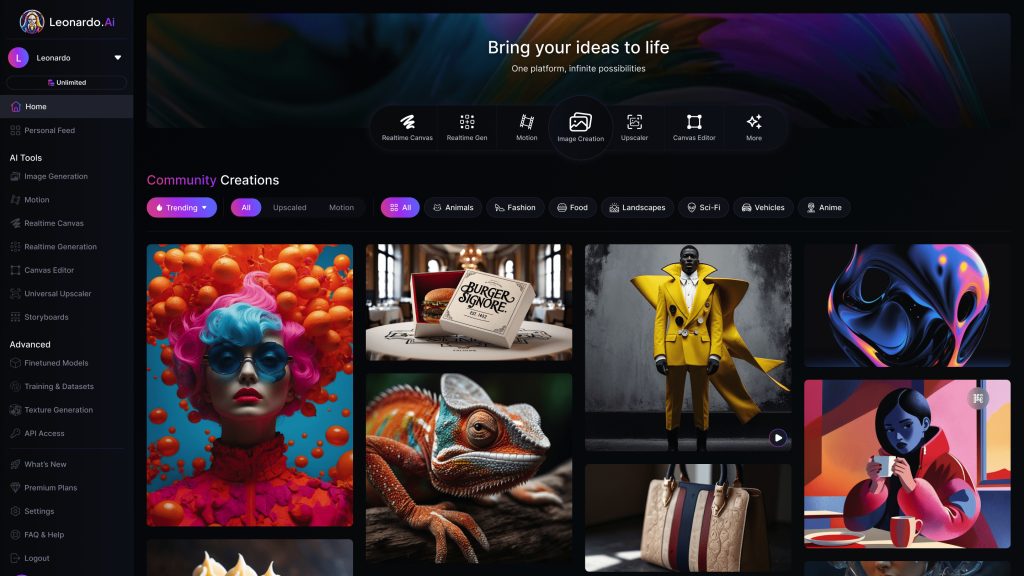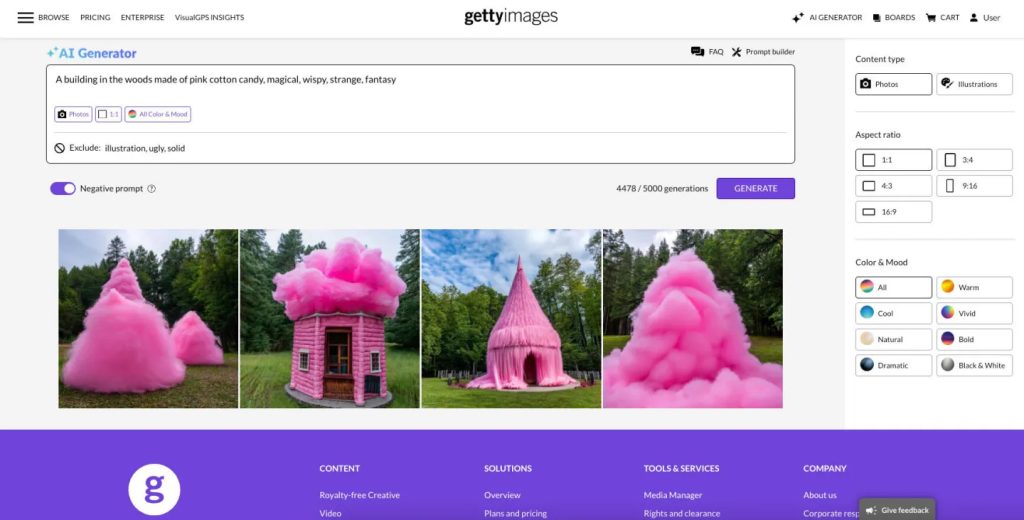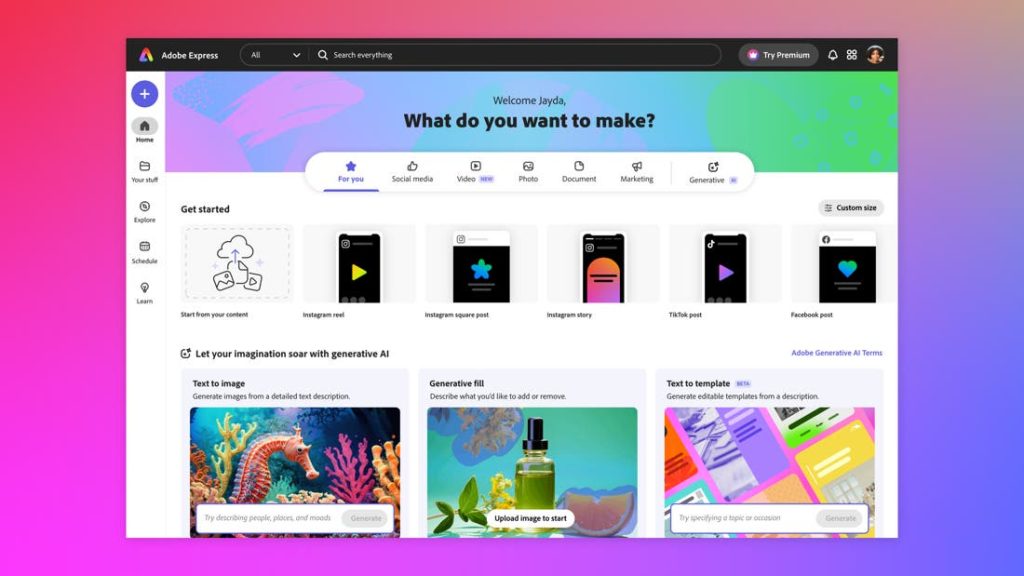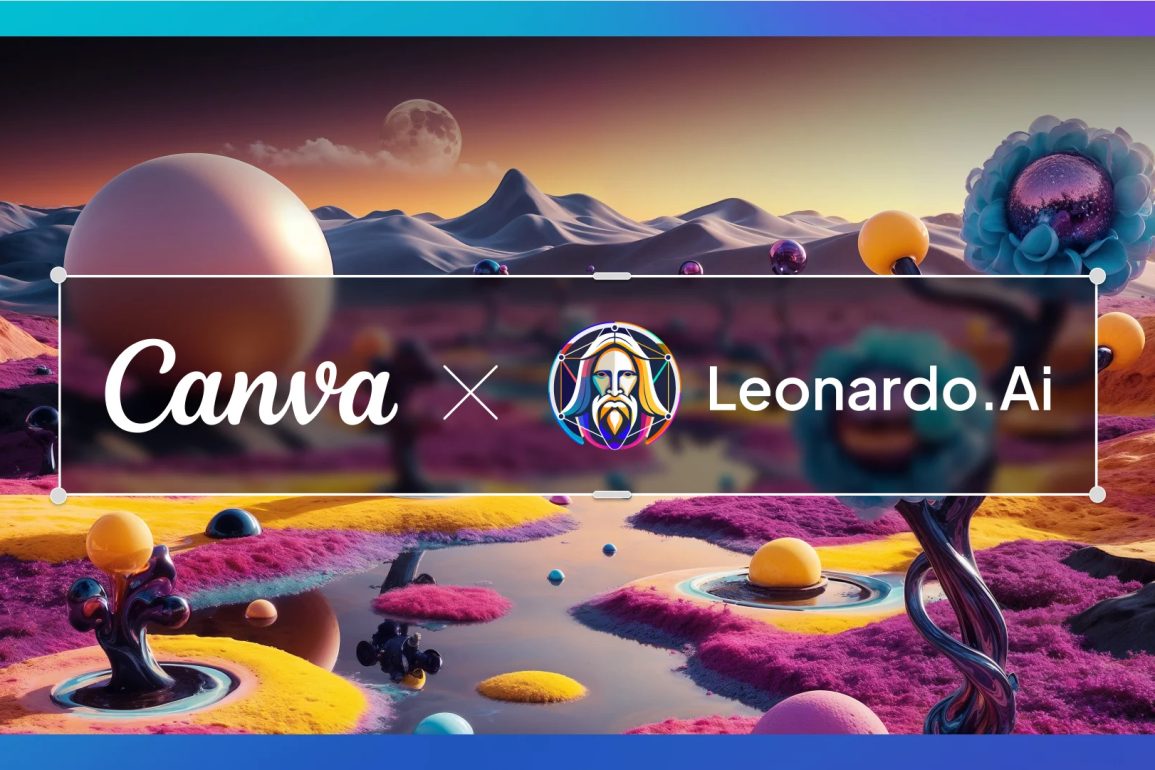The Online Design Platform Acquired Leonardo.AI and Announced a Strategic Partnership with Getty Images
Canva, the popular online design platform, is making significant moves to expand its capabilities in AI-powered design, positioning itself as a stronger competitor in the design space. Recent developments, including Canva’s acquisition of Leonardo.Ai and a strategic partnership with Getty Images, highlight the company’s commitment to enhancing its platform. These moves not only bolster Canva’s offerings for businesses and professionals, but also present a potential challenge to Adobe’s dominance in the design industry.
Canva’s acquisition of Leonardo.Ai marks a notable step forward in its AI journey. Known for its generative AI models that produce high-quality images and artwork based on text prompts, Leonardo.Ai is set to boost Canva’s existing AI tools, such as Magic Studio. This integration enables users to generate unique visuals more easily, which could be particularly beneficial for businesses and professionals seeking to produce custom graphics for marketing, social media, or internal communications.

While Leonardo’s technology may not yet match Adobe’s Firefly in sophistication, this acquisition underscores Canva’s ambition to accelerate the development of AI-driven features. Moreover, Leonardo.Ai’s team of 120 researchers, engineers, and designers will further Canva’s efforts to innovate and introduce new products, ensuring the platform continues to evolve and meet the needs of its users.
In addition to bolstering its AI capabilities, Canva has entered into a new partnership with Getty Images, a move that significantly expands the platform’s content offerings. This integration provides Canva users with direct access to Getty Images’ vast library of high-quality stock photos, which includes over 350 million images. For businesses and professionals, this partnership is a game-changer, offering access to premium visuals for various design projects without the need to purchase expensive image licenses separately.
This extensive collection of images gives Canva an edge over competitors, including Adobe, whose Adobe Stock library offers fewer images by comparison. For businesses that prioritize high-quality visuals in their marketing and branding efforts, this partnership with Getty Images could make Canva a more attractive choice for their design needs.
Additionally, Getty Images’ recent launch of its own generative AI tool raises the possibility of further collaboration, potentially integrating more AI-driven content creation features into Canva’s platform in the future.

While Canva’s moves are strengthening its position in the market, Adobe remains a dominant force in the design industry. Both Canva and Adobe Express have become popular tools, particularly among users who need accessible, browser-based solutions. Canva has the edge when it comes to the quantity of templates, with over 250,000 free templates and more than 400,000 available through its premium plan – significantly more than Adobe offers. This vast selection caters to a wide range of creative needs, allowing users to quickly kickstart their projects with pre-designed layouts.
However, Adobe Express stands out with features like cross-platform compatibility and its “Quick Actions” section, which simplifies common tasks such as background removal and image resizing. These efficiency-focused tools appeal to professionals who prioritize speed and productivity in their workflows.

Despite Adobe’s strengths, Canva’s recent efforts to expand its offerings through AI and premium content partnerships show that it’s not just focused on individual users and small teams anymore. By catering to the needs of professional users and businesses, Canva is positioning itself as a viable competitor to Adobe in the enterprise market. This push could open up new revenue streams and growth opportunities for Canva, making it more than just a tool for casual users.
Canva’s evolving platform is becoming a valuable resource for businesses and professionals looking to enhance their visual content. The integration of AI capabilities through Leonardo.Ai and access to premium visuals via Getty Images give users powerful tools to create high-quality designs more efficiently. For companies focused on brand development, marketing, or content creation, Canva’s new features offer an affordable and accessible way to produce professional-grade visuals without needing extensive design expertise.
Moreover, Canva’s commitment to innovation and user-friendly design makes it an appealing alternative to more complex software like Adobe. As the competition between these two companies intensifies, businesses and professionals can expect even more choices and tools to help them create standout content.
In the coming years, Canva’s focus on AI-powered design, accessibility, and premium content is likely to continue reshaping the design industry, providing users with new opportunities to elevate their creative projects. Whether for solopreneurs, small teams, or large enterprises, Canva’s expanding platform is poised to meet the diverse needs of today’s professionals.









